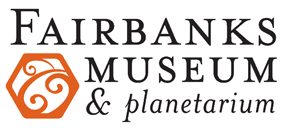
Learning for Life
Natural science public programs
These programs are open to learners of all ages. A suggested donation of $15-$25 supports the presenters.
Mushroom Workshops
with Annabelle Langlois, M.Sc.
As both a nurse and a biologist, Annabelle brings a unique perspective to her passionate pursuit of mycology. Holding a master’s degree in ecology, she first discovered her love for wild mushrooms during an old-growth forest inventory in 2012. Since then, she has been eager to share her enthusiasm for mushrooms through leading educational walks and giving lectures on wild mushroom foraging. She currently serves as a volunteer expert for her local club in Quebec, offering introductory activities on mycology throughout the Eastern Townships region.
July 26, 5:30 PM
Introduction to Wild Mushrooms: Ecology, Identification & Foraging Basics
This program is full and no longer taking registrations.
We will cover what mushrooms are and how they live, as well as how to identify them with confidence. An overview of the common wild edible species and their toxic lookalikes will be offered. We will also share important responsible foraging practices. Participants should then know when, where and how to look for wild mushrooms.
Intermediate Foraging I & II,
This course is for participants who have completed Introduction to Wild Mushrooms. It spans two 2-hour sessions, empowers participants to better understand and predict where and when to find various fungi species based on ecological conditions. With a strong emphasis on fungal ecology and the “why” and “how” behind their processes, it provides an in-depth exploration of the intricate relationships between fungi and their environments.
The first session focuses on mycorrhizal fungi and their symbiotic associations with plants, while the second covers decomposer fungi and their vital roles in nutrient cycling and organic matter breakdown. A significant portion highlights the local fungal biodiversity, with up to 100 common species presented, compared, and discussed.
Participants will have the opportunity to handle and study local mushrooms, reinforcing their understanding of identifying characteristics and ecological niches. Each session will be complemented by an optional foray-style educational walk the following day at the Matsinger Forest in Danville, providing participants with hands-on experience identifying fungi in their natural habitat.
Aug 2, 5:30 PM
Intermediate Foraging I: Mycorrhizal Species
Sept 6, 5:30
